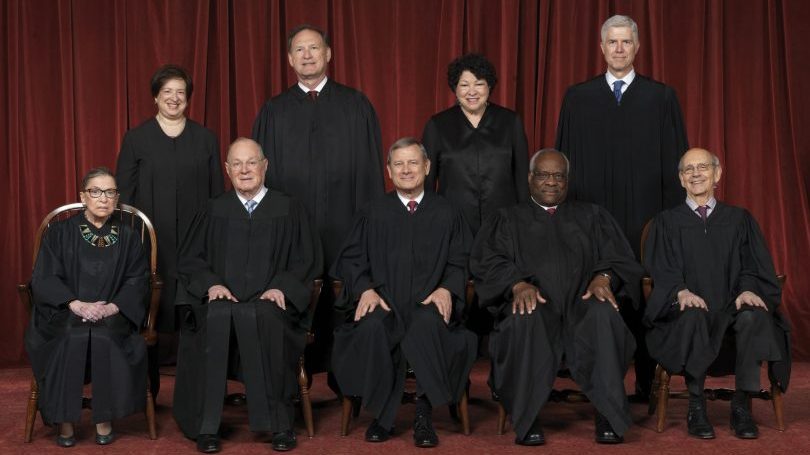As Brett Kavanaugh, 53, readies himself for a series of heated Senate Judiciary Committee hearings, many have questioned who will take up his mentor’s mantle on the Supreme Court.
For three decades Justice Anthony Kennedy was arguably the most powerful figure in Washington, D.C. Famed for his ability to vote across party lines. Kennedy, who announced his retirement in June, helped shape some of the biggest landmark decisions of the past decade—most notably on the issue of same-sex marriage and LGBTQ rights. As a replacement, Kavanaugh is unlikely to be as magnanimous with his votes. But will that alter the Court’s direction?
Only a little, said Dr. Martha Ginn.
Ginn, associate dean of the Pamplin College of Arts, Humanities, and Social Sciences and professor of political science, said Kennedy’s most likely “successor” is already a fixture on the Court: Chief Justice, and occasional swing voter, John Roberts. He also stands to gain the most.
“Roberts will likely become the Court’s ‘swing vote’ now that Kennedy’s out,” Ginn said. “While Roberts may move a little more to the center as result, the overall shift will be more conservative.”
A scholar of constitutional law and the Supreme Court, Ginn said the Court’s rightward movement won’t be quite as monumental as pundits have proposed. After all, Kennedy’s votes weren’t always left-leaning. In his last term, he sided with his liberal colleagues not once.
“I think one point that is getting lost is that Kennedy was still, for the most part, a conservative and voted accordingly,” she said. “There were certain issues where he was more likely to join the liberal wing, most prominently LGBTQ rights, but he voted with the conservative justices the majority of the time.”
Kennedy’s retirement will certainly shift the Court toward the right, Ginn added, but “not to the same degree as if Ruth Bader Ginsburg retired or died in office.”
Meanwhile, as the non-chaos of a Kavanaugh confirmation plays out, Roberts stands to gain as the Court’s new wildcard. Ginn said his latest ruling, that law enforcement agencies must obtain warrants to use cell tower data, is a good indication of how he’ll vote as part of a post-Kennedy Court.
“I think the role of Chief Justice Roberts becomes even more significant in a Kennedy-less Court and that hasn’t been given much attention,” she said. “I think both sides are forgetting that Roberts is a bit of wild card too when it comes to voting on very consequential cases. The one that comes to mind most immediately is upholding the Affordable Care Act.”
As for concerns that Kavanaugh might spearhead efforts to overturn previous landmark cases (I.E. Roe v. Wade), Ginn said chances are slim—at least in the short term.
“Historically, the Court doesn’t want to appear political and is reluctant to overturn longstanding precedents quickly,” she said. “I think what you will see is a gradual erosion of certain principles. In the example of Roe v. Wade, I think you will see the Court upholding more state restrictions on access but not an outright overruling of the landmark case.”
Will that gradual shift make Democrats more willing to put Kavanaugh on the bench unopposed? Hardly. And in that, at least, voters can find some solace with the new Court. The more some things change, the more others will stay the same.
 Augusta University
Augusta University




